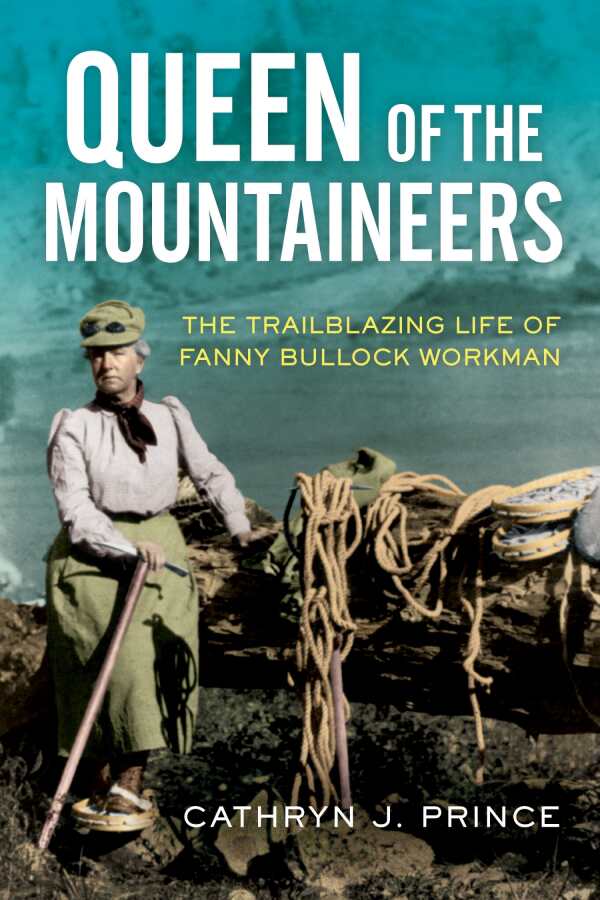Queen of the Mountaineers
The Trailblazing Life of Fanny Bullock Workman
Born in the mid-1800s, Fanny Bullock Workman was a trailblazer, garnering mountain-climbing records in a male-dominated sport and fighting for women’s rights years before the Nineteenth Amendment became law. Cathryn J. Prince’s Queen of the Mountaineers is an illuminating account that reveals Workman as an unstoppable climber who defied social conventions and those who claimed that a woman’s place was at home and not in the hills.
Workman was born into a life of privilege in Worcester, Massachusetts. She married a wealthy physician, Hunter Workman, but rejected comfort in favor of rigors and dangers. Her husband became her mountaineering partner, and they used their wealth to fund seven costly expeditions to the Himalayas, beginning in 1898.
This book is notable for its bright descriptions of the Workmans’ expeditions. Scaling 23,000-foot mountains brought the possibility of frostbite, dehydration, altitude sickness, fatal plummeting, and blizzards. On more than one occasion, death claimed guides and porters.
The book’s other notable feature is the story of the climbing rivalry between Workman and Annie Smith Peck. Peck, like Workman, was an ardent feminist who battled for the women’s mountaineering record. Their competition captivated the public and was fueled by geographical society debates, newspapers, and magazines. Ultimately, the title was awarded to Workman. Still, Peck was a highly regarded mountaineer who made multiple assaults on Peru’s 22,200-foot Mount Huascarán, which offered all of the challenges that Workman encountered in the Himalayas.
The social history in Queen of the Mountaineers will inform scholars and delight mountaineers and armchair travelers with its rich and detailed descriptions of local people, global customs, and the dangers of traveling abroad at the turn of the twentieth century.
Reviewed by
Karl Helicher
Disclosure: This article is not an endorsement, but a review. The publisher of this book provided free copies of the book to have their book reviewed by a professional reviewer. No fee was paid by the publisher for this review. Foreword Reviews only recommends books that we love. Foreword Magazine, Inc. is disclosing this in accordance with the Federal Trade Commission’s 16 CFR, Part 255.

